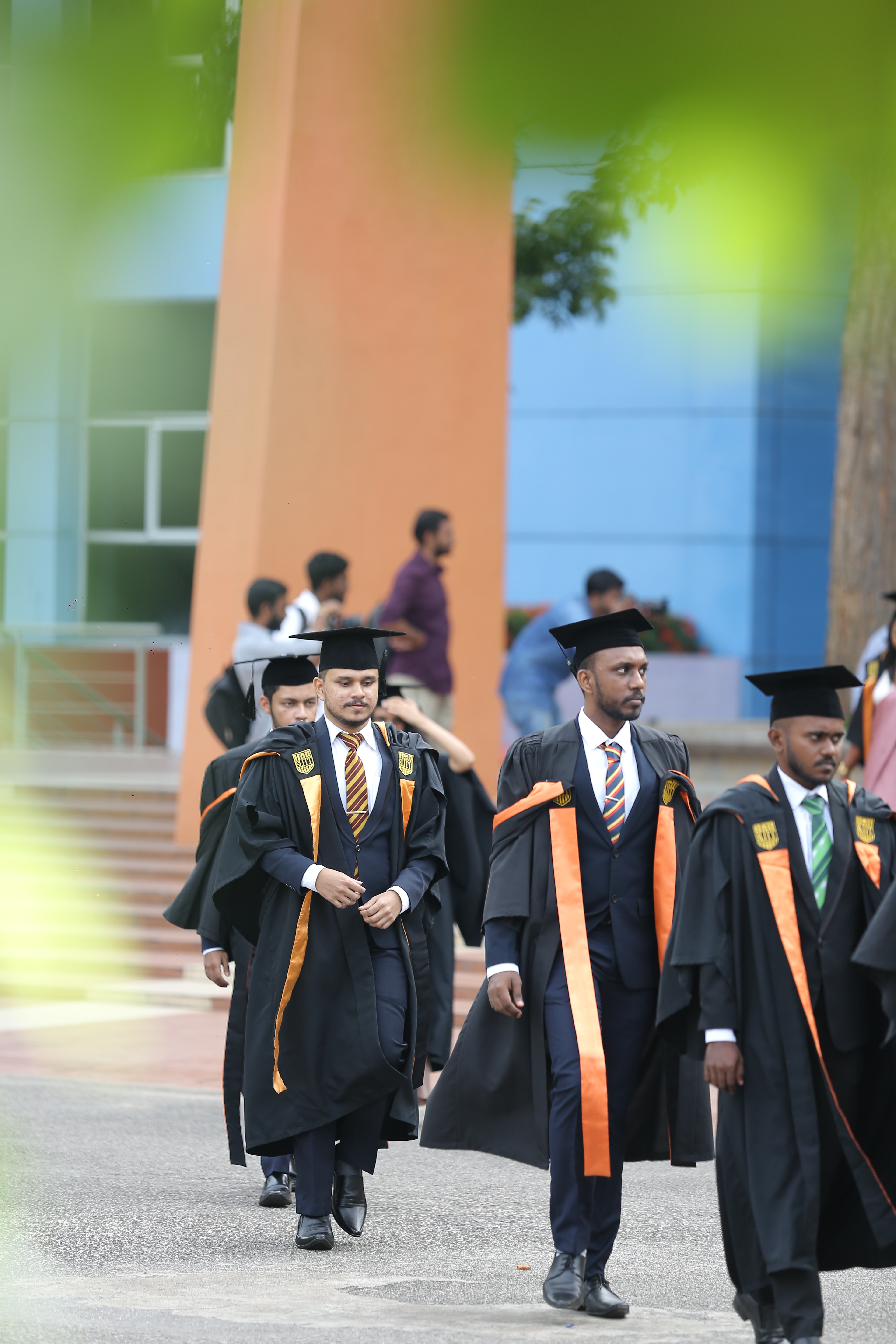SLIIT operates within a well-defined university structure that ensures academic excellence, research innovation, and institutional growth. This framework enables effective governance, streamlined decision-making, and continuous advancement in higher education.

SLIIT University Structure

Governing Bodies
Ensuring strategic direction and policies.

Leadership & Administration
Driving academic and operational success.

Faculties & Departments
Delivering excellence in education.

Research & Innovation
Advancing knowledge and technology.

Student Support Services
Enhancing student growth and well-being.

Future Growth & Development
Expanding academic and research frontiers.
SLIIT is guided by key governing bodies that uphold the institution’s vision and strategic direction. The Board of Directors oversees major decisions, policy-making, and financial sustainability, ensuring long-term institutional success. The University Council serves as the academic and administrative authority, maintaining high academic and operational standards.
At the helm, the Chancellor provides leadership and ensures adherence to governance principles. The Vice-Chancellor, as the chief executive officer, drives academic and operational excellence, implementing policies and managing university-wide activities. Supporting this role, the Senior Deputy Vice-Chancellor & Provost oversees academic and research strategies, while Pro Vice-Chancellors focus on specialized areas such as student affairs, research, and industry engagement.
SLIIT’s academic framework is organized into multiple faculties, each dedicated to delivering high-quality education in specific disciplines. These include:
- Faculty of Computing
- Faculty of Engineering
- School of Business
- Faculty of Humanities & Sciences
- Faculty of Graduate Studies
- School of Architecture
Each faculty is led by a Dean who ensures curriculum development, academic excellence, and faculty coordination. Additionally, Heads of Departments manage specific subject areas, fostering specialized knowledge and skill development.
SLIIT is committed to advancing research and innovation through its Research & International Centre and various research clusters. The Pro Vice-Chancellor (Research & International) leads initiatives to enhance research funding, partnerships, and global recognition.
Ensuring a holistic student experience, SLIIT has dedicated departments for student services, career guidance, and extracurricular activities. These units support student well-being, career growth, and personal development.
SLIIT’s structured approach enables efficient operations, fostering a dynamic academic environment that supports students, faculty, and researchers. This well-organized framework ensures that SLIIT continues to excel as a leading higher education institution in Sri Lanka and beyond.
- The Board of Directors oversees policy and financial decisions.
- University Council maintains academic standards and governance.
- Strategic guidance ensures long-term institutional success.
- Transparent decision-making fosters academic growth and stability.
- The Chancellor provides overall institutional leadership.
- The Vice-Chancellor drives operational and academic excellence.
- Senior Deputy Vice-Chancellor oversees academic strategies.
- Pro Vice-Chancellors lead specialized areas like research and industry engagement.
- The Faculty of Computing offers specialized IT and software programs.
- The Faculty of Engineering focuses on engineering disciplines.
- The Faculty of Business covers management and financial programs.
- The Faculty of Humanities & Sciences ensures interdisciplinary research.
- The Research & International Centre promotes cutting-edge research.
- Pro Vice-Chancellor for Research leads funding and collaboration.
- Research clusters in departments focus on innovative solutions.
- Strong industry partnerships encourage practical applications.
- Career development and guidance services are available.
- Extracurricular activities foster personal growth and networking.
- Student welfare services ensure health and well-being.
- Academic support aids students in achieving their educational goals.
- Ongoing expansion of academic programs and research initiatives.
- New faculties are being introduced to meet global demands.
- Focus on international partnerships for research collaboration.
- Growth in infrastructure supports future academic excellence.



